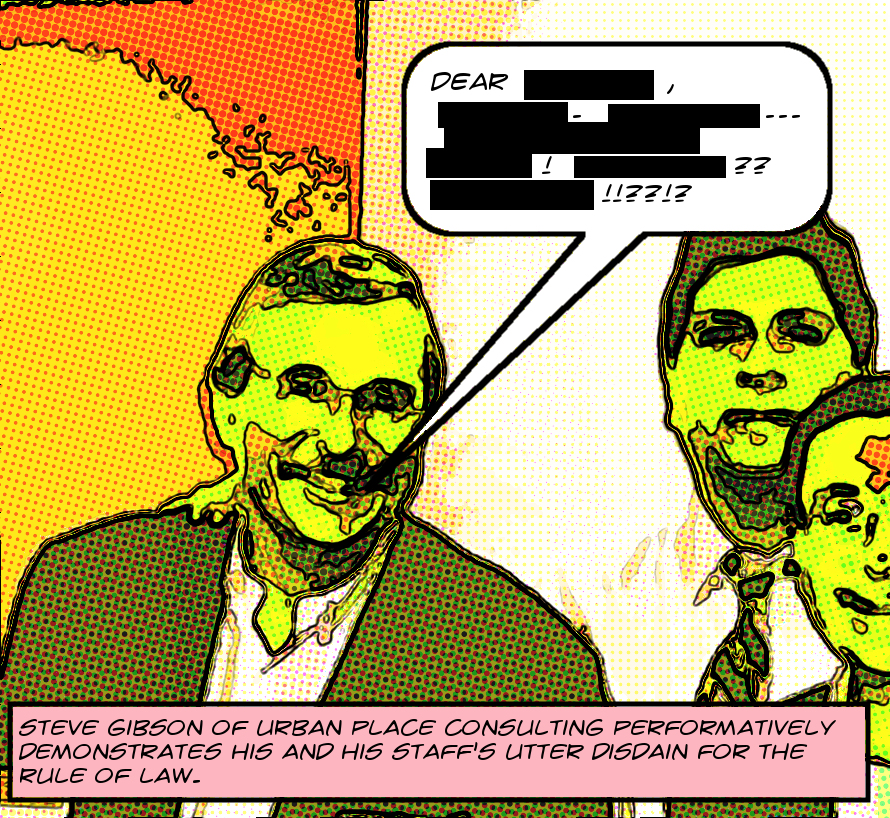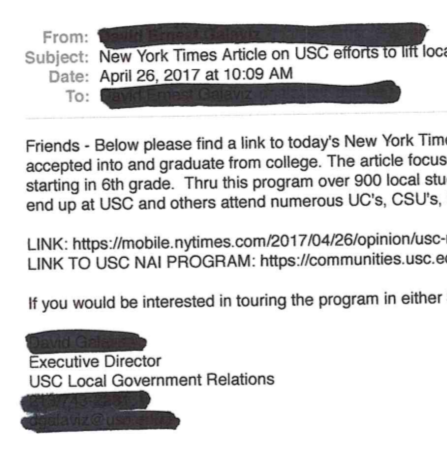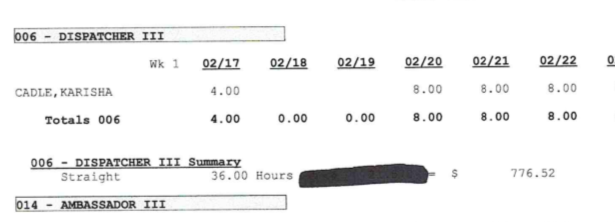 For the last few months I’ve been posting a lot of records from:
For the last few months I’ve been posting a lot of records from:
But I haven’t discussed the fact that these releases weren’t complete. In each case, Aaron Aulenta of Urban Place Consulting, who seems to be in charge of both of these BIDs, claimed numerous exemptions to the Public Record Act and told me that there was a bunch of material that he was printing out and redacting by hand on the basis of these exemptions.
Well, for various reasons I wasn’t able to get over to the offices of the FCBID to look at this stuff until Tuesday. Aaron Aulenta was kind enough to let me scan it instead of paying the usual outrageous copying fees that BIDdies habitually claim to be allowed to collect, and, after some minimal processing, I’m pleased to announce that it’s now available on Archive.Org. There’s some pretty interesting stuff in there, but it turns out that in this case the most interesting stuff is what’s not in there.
That is to say, the most interesting aspect of this release is what Aaron Aulenta thought that he was justified in redacting. Perhaps you recall that the California Public Records Act only allows for material to be redacted or withheld if one or more of the explicit enumerated exemptions to be found in the statute applies. There’s one exception to this principle, to be found in the infamous §6255(a), which states:
The agency shall justify withholding any record by demonstrating that the record in question is exempt under express provisions of this chapter or that on the facts of the particular case the public interest served by not disclosing the record clearly outweighs the public interest served by disclosure of the record.
As you can imagine, BIDdies1 freaking love this last bit. It’s the most abused section of the law, with BIDdies, stoned out of their minds on white privilege and steeped in their delusional2 theory that laws are written and enforced for no better reason than to preserve and augment their power and wealth, claiming randomly that pretty much any piece of information they feel might embarrass them or their lackeys is exempt under this so-called public interest exemption.
For your future reference, there are at least two dispositive signs that this clause is being misused. First, they will refuse to state what public interest they feel is clearly being served by their withholding of the information. You’ll note that the law requires them to make this judgment on the particular facts of the case, which do not, can not, include a vague wave of the hand towards a claim of “I don’t heart that.”
Second, they will state semantically empty summary phrases which purport to refer to actual exemptions but, in fact, do not. Aaron Aulenta’s favorite of these seems to be “the benefit does not outweigh the burden.” It’s not exactly clear what the hell he’s thinking when he says this, and getting my hands on all these redacted documents has made it less rather than more clear, as you will see from the specific examples to be found after the break.

743-2231,3 and his email address is easily found to be dgalaviz@usc.edu. Drop him a line and say hey! Even his official bio can be found at this point.
So what was the theory on which Aaron Aulenta redacted this information? Well, as I said above, the most likely answer is “who freaking knows?” But I’ve asked him to explain himself, and perhaps he will. Meanwhile, I’m really guessing it’s some twisted interpretation of the aforementioned §6255(a). Now, in one sense it’s hard to get worked up about this nonsense. After all, who really cares about David Galaviz or what his email address is? However, there are at least two reasons why it matters. First, as I’ve mentioned repeatedly, we here at the blog rely heavily on the mosaic theory of intelligence gathering. Every piece of information, no matter how trivial it might seem in isolation, potentially fits in to a larger and as-yet-unseen puzzle.
Less speculatively, though, and much more importantly, is the fact that this kind of unjustified, unjustifiable redaction causes a huge delay in the production of records. As I said above, for various reasons, I wasn’t able to get over to the FCBID’s office to look at what turned out to be well over 1000 pages of printed-out and redacted material until May 16, about three months after the initial request. But it is a key provision of the Public Records Act that records be made available promptly.4
Aaron Aulenta’s misapplication of whatever exemptions he imagines apply here ended up delaying the production of the material for more than two months. Also, the fact that he insisted on redaction by printing electronic records out on paper and redacting with a pen has degraded the searchability of these documents essentially down to zero, making them far, far less usable than the records which he supplied in their native electronic formats. This is a really bad outcome, and it moves his illegal redactions from a technical to a substantive violation of the law I believe.5

Why, I remember as clear as day my seventh grade algebra teacher, Miss6 … well, OK, I forgot her name, but I remember as clear as day when some kid7 asked her, “but Miss X, when are we ever gonna use this in real life?!” And I forgot what she said, but it’s a sure bet that what she did not say was “when some clown redacts one term of a three term equation and you want to solve for the missing term.” Just e.g. consider Karisha Cadle right there at the top. She worked 36 hours and the BID got billed a total of $776.52 for it. Thus, says that long-ago algebra lesson:
and therefore
Again, it may turn out to be important what this dispatcher gets paid, or it may not.8 But, as above, what’s important here is first the principle of the thing and second and much more importantly the effect that these bullshit redactions have on the prompt availability and searchability of the records.
Also note that these two examples are far, far from being isolated. I don’t think I saw a single ultimately justifiable redaction in the bunch, except just possibly a few names of homeless people engaged by the BID’s homeless services provider. Just to name the most egregious example, Aaron Aulenta redacted the names and email addresses of the members of the Board of Directors of the FCBID as well as the mailing addresses of the property owners in the BID. This information also is uniformly on the public record and already available elsewhere. When will they ever learn, you might well ask. Well, as a wise man once said, Power concedes nothing without a demand. It never did and it never will. Perhaps we’ll be able to teach them a thing or two, eh?
Image of Steve Gibson is a highly modified version of this image. I only wish that there had been some aesthetically acceptable way to keep Ms. Kerry Morrison in the picture. The version that appears here is ©2017 MichaelKohlhaas.Org.
- And other tyrannical government employees, to be sure, but of course this blog is about BIDdies.
- But unfortunately not entirely inaccurate.
- It’s so charming that USC doesn’t use area codes on this page. And really, why should they? They were here long before the splits, the overlays, the loss of the universal 213 that we knew and loved!
- At §6253(b).
- This same problem applies even much much more so in the case of batty little fusspot Blair Besten, head BIDdie of the infamous Historic Core BID in Downtown Los Angeles. She’s not only well-known for her crackpot redactions but also she insists, also both illegally and unsupportably, on charging 15¢ per page for copies. Of course, she also insists on printing out every page that she wants to redact. This has the effect not only of unconscionably delaying production for, sometimes, up to four months, but also of allowing her to collect what can run to hundreds of dollars for stuff that never needed to be printed in the first place. These law-flouting behaviors on her part will end in tears, mark my words, friends, and, of course, stay tuned.
- They did have Ms. back then, but this teacher did NOT use it.
- Not me, really!
- Given that the document in question is an invoice rather than a pay sheet, it’s more than likely that Ms. Cadle herself doesn’t take home $21.57 per hour, but rather that Securitas bills the FCBID $21.57 per hour and Cadle gets something significantly less than that. This question can surely be sorted out from the documents available, but I haven’t had time to do it. I may do so soon, though, as I’m thinking for reasons that are a little hard to articulate right now that Aaron Aulenta is going to claim the trade secrets exemption for this information. This is not only just as stupid as the various public interest claims discussed above, but, interestingly, even easier to counter. I kind of hate to keep saying it, but, as always, stay tuned.
